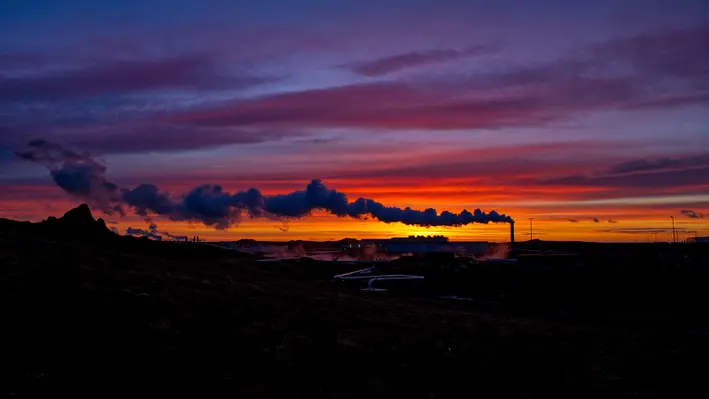
 Irish company TerraThermo Ltd and alfa8 Colab Ltd (alfa8) have announced the signing of an Investment Agreement to financially support the development of Projekt Thermo, a 12MW deep geothermal power plant project in Germany.
Irish company TerraThermo Ltd and alfa8 Colab Ltd (alfa8) have announced the signing of an Investment Agreement to financially support the development of Projekt Thermo, a 12MW deep geothermal power plant project in Germany.
The investment made by alfa8 covers the provision of up to EUR€1mn in working capital to advance Projekt Thermo to a financial close, and up to EUR€32.5mn in future financings for the project.
TerraThermo will use the working capital to undertake technical and financial due diligence on the project, with the intention of reaching financial close in Q4 2024/Q1 2025. The company is also in discussions with the European Investment Bank EIB for a potential parallel investment to fund up to EUR€32.5mn for the project, in addition to the investment already provided by alfa8.
The first stage of Projekt Thermo is to develop a 12MW ‘Hot Dry Rock’ geothermal power plant in Lower Saxony, Germany, marking the first of many deep geothermal generation and energy storage projects to be developed by TerraThermal in Europe.
John Ashbridge, CEO of TerraThermo, is “extremely pleased” to welcome alfa8 as an investor in the project, given the company’s “focus on first-of-a-kind technology and our matching visions and expectations of what can be achieved in the geothermal energy industry in the coming years.”
Erin Glen, COO of alfa8, commented, “TerraThermo is focused on delivering a first-of-a-kind, deep hot dry rock geothermal project in Europe. We are excited to team up with them to accelerate the development of geothermal technology in Europe. At alfa8, we are on a mission to deploy catalytic capital into the energy transition and promising first-of-its-kind technologies that can accelerate the path to net-zero.”
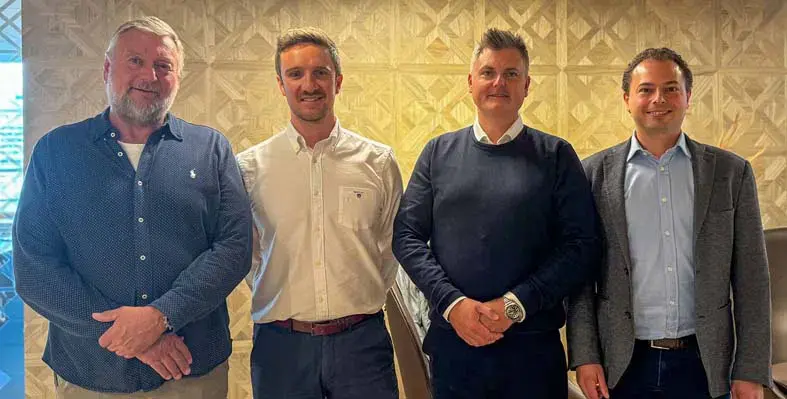
 Wells and subsurface specialist, Elemental Energies, has announced the acquisition of Norway-based well management and consultancy company, Well Expertise AS.
Wells and subsurface specialist, Elemental Energies, has announced the acquisition of Norway-based well management and consultancy company, Well Expertise AS.
Expected to generate revenues surpassing £50mn in 2024, the acquisition also adds significant growth to Elemental's North Sea expansion ambitions in Norway.
The Well Expertise acquisiton is the latest in a series of strategic acquisitions by Elemental Energies, including Vysus Senergy Wells in December 2022, Norwell Engineering in May 2023 and Sentinel Group in February 2024.
The acquisition established the companies' shared growth ambitions in well management services across oil and gas, decommissioning, geothermal, and carbon capture and storage projects.
Mike Adams, CEO of ElementalEnergies, said, “Norway is a pivotal region for us through its stable energy policy that prioritises both security and transition, aligning with our core ambitions as a business. As a mature market, Norway faces the challenge of managing new production with decommissioning and energy transition which present significant opportunity. This deal marks the start of the next chapter for both companies, as we build a strategic global wells and subsurface partner that will allow operators to outsource larger and more diverse projects with confidence.”
Sigve K. Næsheim, who will continue as CEO of Well Expertise and head up Norway operations, said, “This acquisition marks a significant milestone, underscoring our commitment to providing best-in-class well engineering and project management services. From the outset, our strategic alignment with Elemental Energies has fostered a shared vision to become the go-to global well management partner for projects spanning exploration,production, decommissioning, CCS, and geothermal. As part of Elemental Energies, we are able to expand the development opportunities for our team, bring new perspectives to our projects,and deliver expanded capabilities to our clients.”
Stig Seland, Commercial Manager of Well Expertise and one of its founders, said, "At Well Expertise, we have built long-term relationships with our customers through our collaborative and customer-first approach, which has been the cornerstone of our success. I am very pleased to announce that we can now offer an even broader range of services to our clients. Rest assured, our commitment to putting customers first will remain our primary focus as we continue to support the future of Norwegian energy."
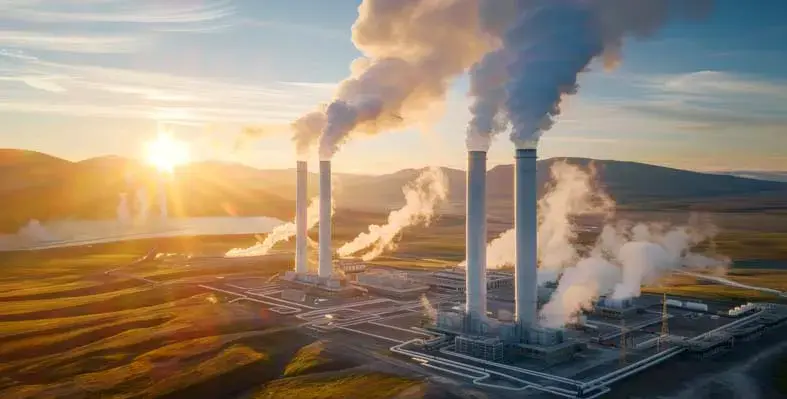
 Backed by the Ministry of Economic Affairs and Employment and Salon Kaukolämpö Oy, Lounavoima is developing a geothermal heat well storage at its waste-to-energy (WtE) plant at the Lounapuisto circular economy park in Salo.
Backed by the Ministry of Economic Affairs and Employment and Salon Kaukolämpö Oy, Lounavoima is developing a geothermal heat well storage at its waste-to-energy (WtE) plant at the Lounapuisto circular economy park in Salo.
Following good test run from the first well, three additional wells are now being constructed. The final heat well is expected to be completed by the summer of 2025.
Upon completion, the WtE plant will have six geothermal heat wells with a combined output of 6MW.
Waste heat produced by the WtE plant is stored at a depth of more than 2 kms in the geothermal heat wells to cover the district Salo's heating requirements during the winter.
The first well which was tested last winter runs 1,600-metre-deep, producing 450 MWh of energy from January to March.
A second heat well, which is undergoing tests, was drilled in the autumn of 2023 and a third was drilled in the winter of 2024. Its pipework will be completed in the late summer.
Finnish company Geomachine Oy deployed new drilling equipment which were specially designed for the exploration of the heat wells, achieving a target depth of 2,000 metres. The heat pump process was delivered by Calefa Oy.
Once all the heatwells are brought onstream, the six new geothermal heat wells will have a combined output of as much as 14 GWh a year, which is equivalent to the annual heating need of approximately 700 single-family homes.
“The heat well production will always be used first if the district heat output of the WtE plant isn’t enough. This allows us to primarily replace the need for starting oil heating plants and, in many cases, we can also avoid the need to start a backup power plant,” said Lounavoima and district heating company Salon Kaukolämpö's Managing Director Petri Onikki.
“We have such top expertise here in Finland. Even though the new technology development project has not always gone smoothly, the results have exceeded our expectations. The geothermal heat wells have a multiplying effect on heat production in Salo,” said Onikki. “The project is a successful example of concrete circular economy work at Lounapuisto,” he added.
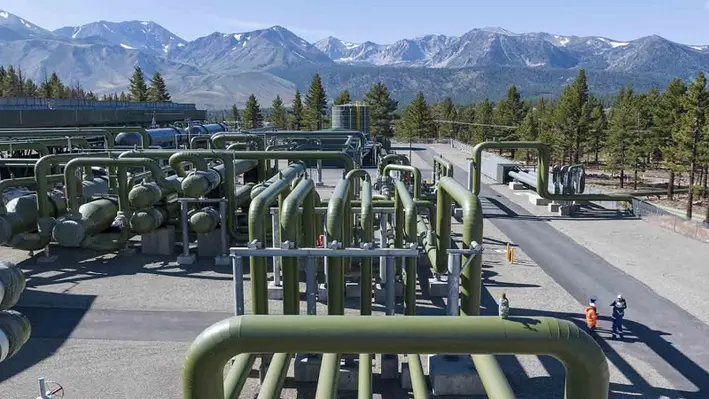
 SLB and Ormat Technologies have entered into a strategic collaboration to develop integrated geothermal projects which reduce the associated risks while improving overall economics and ensuring long-term reliability.
SLB and Ormat Technologies have entered into a strategic collaboration to develop integrated geothermal projects which reduce the associated risks while improving overall economics and ensuring long-term reliability.
The integrated offering will provide developers with a comprehensive suite of solutions, including exploration and resource assessments to power plant commissioning and operation.
Both SLB and Ormat will provide operators with traditional and next-gen geothermal solutions, such as enhanced geothermal systems (EGS) and advanced geothermal solutions (AGS), with SLB obtaining a license of Ormat’s ESG patent.
The collaboration combines Ormat’s expertise in geothermal fields and project development, power plant design, manufacturing, operations, and engineering, procurement and construction capabilities with SLB’s expertise in reservoir characterization, well construction, completions and production technologies.
Irlan Amir, Vice President of Renewables and Energy Efficiency for SLB, said, “Geothermal energy represents a significant opportunity for the energy transition, providing clean, baseload renewable power. By combining our expertise with Ormat’s, we can help customers unlock the full potential of geothermal resources and accelerate the deployment of this sustainable energy source.”
Paul Thomsen, Vice President of Business Development at Ormat Technologies, commented, “Ormat’s world class geothermal development and technology expertise perfectly complements SLB’s significant reservoir knowledge and well construction technologies and expertise. Together, we can deliver more projects, offering exceptional value to our developers and contributing to a cleaner energy future.”
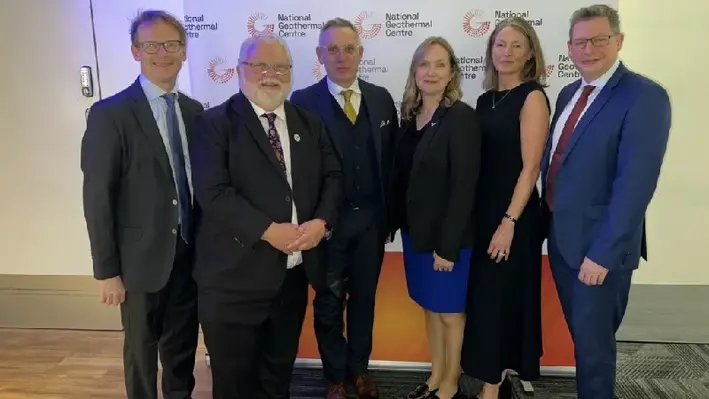

The UK National Geothermal Centre (NGC) has been launched to accelerate the UK geothermal sector and enhance the role it can play in decarbonising the UK’s future energy mix.
With funding from the Net Zero Technology Centre (NZTC), Durham University, SHIFT Geothermal, and The Reece Foundation, the NGC aims to support research and innovation, develop expertise and drive the creation of a policy, regulation and investment framework which enables geothermal advancement. It will drive collaboration between government, industry, and academia, promoting the integration of geothermal energy into the future renewable energy mix as a low carbon option for heating homes and industries, and power generation.
The geothermal sector has the potential to meet 10GW of the UK’s projected heating demand and 1.5GW of the anticipated electricity demand by 2050. Geothermal expansion could create 50,000 jobs for the future and result in an annual reduction of 10 million tonnes of CO₂ emissions.
Nigel Lees, chair of the NGC, said, “The launch of the National Geothermal Centre today represents a significant step in realising the opportunities that geothermal energy provides the UK. For several decades there has been a growing and meaningful contribution to our understanding of geothermal potential in the UK, yet we remain in the nascent stages of development with pockets of knowledge and expertise.
“The Centre will embrace and build on this, working collaboratively with all stakeholders to ensure a common understanding of the opportunities and challenges whilst giving a consistent voice and advocacy to fully unlock the geothermal potential in the UK and play a crucial part in the delivery of our net zero ambitions.”
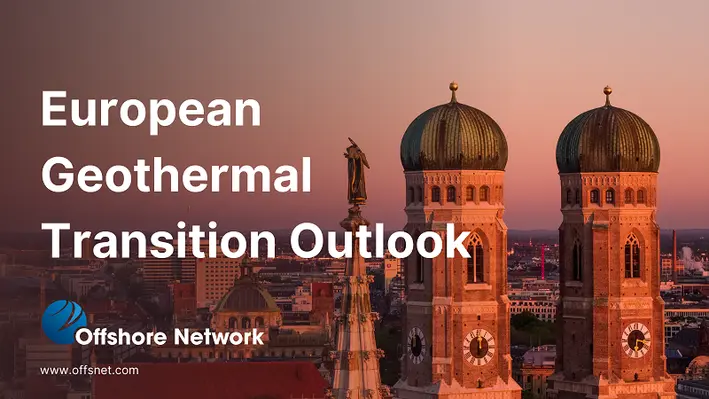
 While Europe has often spearheaded geothermal progress and innovation, the past few years have played witness to a stagnated playing field as financial blockades and unclear legislation has somewhat slowed the project pipeline. However, after funding through both private and public channels continues to gain momentum, the region has the resources and drive to become a major market player within the geothermal market once again.
While Europe has often spearheaded geothermal progress and innovation, the past few years have played witness to a stagnated playing field as financial blockades and unclear legislation has somewhat slowed the project pipeline. However, after funding through both private and public channels continues to gain momentum, the region has the resources and drive to become a major market player within the geothermal market once again.
In January 2024, the European Union Parliament overwhelmingly endorsed a resolution that called for a new geothermal energy strategy to be implemented across the region. The resolution calls for an industrial alliance on geothermal energy, as well as the installation of an insurance programme to mitigate against financial risk. This endorsement is a huge step for the region and will hopefully provide reassurance and confidence in the market to warrant further investment.
However, while the parliamentary push is a step in the right direction, concerns are still being drawn around the commerciality of the commodity for geothermal, and the debate about whether the long-term payoff and associated risks are worth the investment.
With the above issues and more industry insights set to be discussed at the upcoming GTS EU 2024 later this year, including topics around expediting growth, new technology and scalability, enhancing the transition, attracting external stakeholders and commercial considerations, the bespoke outlook offers an alternative look into the pioneering industry.
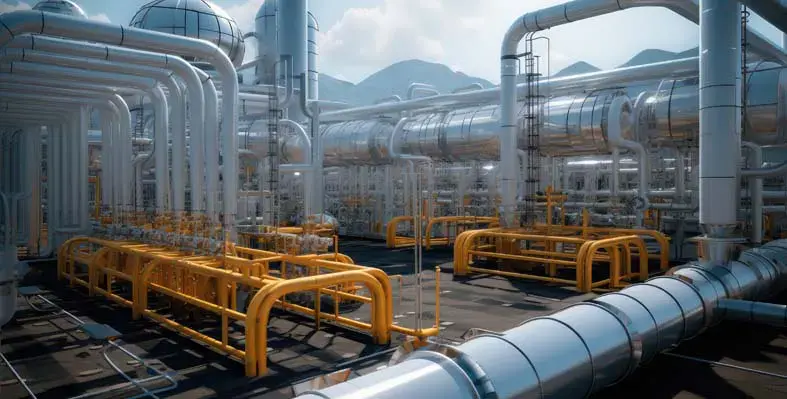
 An interdisciplinary joint project on geothermal development in Germany, AGENS has received a €44.4mn grant from the Federal Ministry for Economic Affairs and Climate Protection (BMWK), based on a resolution of the German Bundestag.
An interdisciplinary joint project on geothermal development in Germany, AGENS has received a €44.4mn grant from the Federal Ministry for Economic Affairs and Climate Protection (BMWK), based on a resolution of the German Bundestag.
Defined as the 'Demonstration of an adaptive, multilateral reservoir development for geothermal energy for seismicity and cost mitigation in the Upper Rhine Graben' that will be delivered over a span of five years, the AGENS initiative involves geopfalz, Institute for Geothermal Resource Management at ITB gGmbH, Johann Wolfgang Goethe University of Frankfurt am Main, Rhineland-Palatinate Technical University of Kaiserslautern-Landau, Ruhr University Bochum, geomecon GmbH, and the Technical University Bergakademie Freiberg.
In a sub-project of the AGENS that will be spearheaded by Stadtwerke Speyer GmbH-subsidiary Geopfalz GmbH & Co. KG in Schifferstadt city, Geopfalz will create 'Rhein-Pfalz' – the first deep geothermal duplicate, a basic building block for geothermal heat supply. This will ensure decarbonisation of the heat supply in Speyer and Schifferstadt, creating public awareness on sustainable living.
Reasearchers will also take into account the larger economic impact of the project.
With an allocation of €24.3mn, the project will look into a pioneering exploration technique, in which several side boreholes are drilled from a main borehole. The reservoir can be developed in a geomechanically and hydraulically optimised manner that reduces the risks of induced seismicity while increasing productivity.
A remaining funding of around €20.1mn will go to the other project partners.
Geo-Energie Suisse AG is an associate partner in the AGENS project. The project also involes the Federal Ministry of Education and Research (BMBF), which is supporting as part of the supplementary project LISAGENS with an additional funding volume of approximately €1.8mn to address questions of basic research.
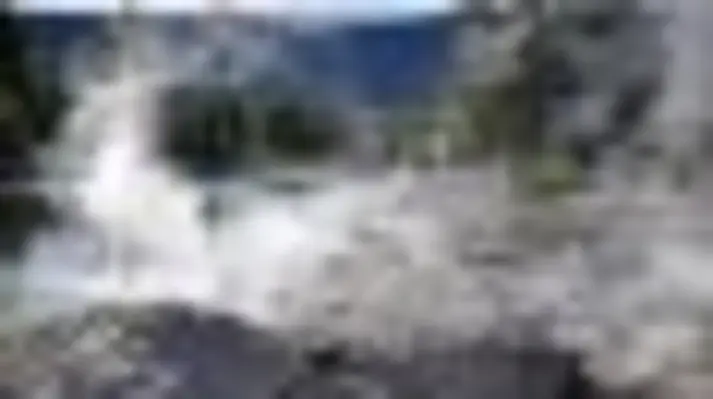
 The European Investment Bank (EIB) has provided a loan to Eavor Technologies to support the commercial-scale geothermal heating project in the German state of Bavaria.
The European Investment Bank (EIB) has provided a loan to Eavor Technologies to support the commercial-scale geothermal heating project in the German state of Bavaria.
Eavor will implement its closed-loop technology, Eavor-Loop, for the first time at commercial scale in the Bavarian town of Geretsried with the help of EIB’s loan of close to €45mn. The loan comes with a guarantee by the European InvestEU programme.
The project is co-financed by Japan Bank for International Cooperation, ING Bank N.V., and Mizuho Bank Ltd, and is insured by Japan’s Export Credit Agency, Nippon Export and Investment Insurance. It qualifies as a green loan in accordance with the Loan Market Association’s Green Loan principals. The combined support amounts to €130mn. The project is also being developed with the additional support of a €91.6mn grant from the EU Innovation Fund.
The Eavor-Loop will provide heating to households and businesses in Geretsried. In addition, an on-site power station will convert the geothermal heat into electricity. Eavor intends to start heat delivery by 2026, and the Eavor-Loop has started developing a second project in Germany to supply 15-20% of the demand of district heating in Hanover.
Nicola Beer, EIB Vice President, said, “The Eavor-Loop supports the transition to a carbon-neutral energy system in Germany and helps the country to get independent form fossil fuels, while adding to energy security for the people and businesses.”
Commissioner for Climate Action, Wopke Hoekstra, commented, “Once again, we see how valuable the work of the Innovation Fund is through the funding it provides for cutting edge projects that lower emissions. Today, thanks to €45mn investment by the European Investment Bank and €91.6mn from the Innovation Fund, we are supporting the innovative geothermal technology Eavor-Loop in Bavaria, Germany.”
Daniel Molk, Executive Vice President Europe Operations, concluded, “We are impressed and honoured that, after the EU Innovation Fund, the European Investment Bank is now also co-financing our project in Geretsried. Europe has recognised that the Eavor Loop is a scalable key technology for achieving climate neutrality and significantly more energy security on this continent."

 AGR has been awarded a contract by geothermal energy supplier Innargi for the provision of technical consultancy for three appraisal wells being drilled in Aarhus, Denmark.
AGR has been awarded a contract by geothermal energy supplier Innargi for the provision of technical consultancy for three appraisal wells being drilled in Aarhus, Denmark.
Through the contract, AGR will provide wellsite geology and drilling supervision over the Aarhus wells as the company boasts extensive experience in well and reservoir engineering for geothermal wells. AGR has previously supplied software solutions for managing geothermal drilling time and costs for projects throughout Germany and Austria.
Lene Thorstensen, Manager Operations and Wellsire Geology at AGR, said, “Our team has a track record of managing drilling of more than 200 wells in the North Sea. The Aarhus project is a great example of valuable competence transfer from the oil and gas industry to renewable energy sources.”
Innargi aims to bring clean and reliable district heating to Europe through geothermal energy, and the Aarhus plant project provides a stepping-stone to achieving that goal. The geothermal plant, if everything goes accordingly, will become the EU’s largest geothermal district heating system. A 6,000 horsepower drilling rig has been set to drill 2.5 km into the ground to extract the heated water, with heat delivery set to begin in 2025. The system is projected to provide 20% of Aarhus’ district heating upon completion.
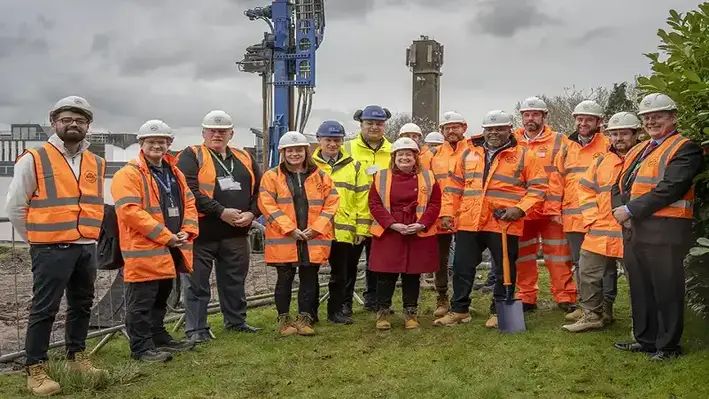
 In line with its decarbonisation plans, the British Geological Survey has initiated a £1.7mn renewable energy system, including the installation of a geothermal heat pump that also serves as a 'living laboratory' at its headquarters in Keyworth, Nottinghamshire.
In line with its decarbonisation plans, the British Geological Survey has initiated a £1.7mn renewable energy system, including the installation of a geothermal heat pump that also serves as a 'living laboratory' at its headquarters in Keyworth, Nottinghamshire.
Primarily funded by the Natural Environmental Research Council (NERC) with a further contribution from the Government’s Public Sector Decarbonisation Scheme, the installed system comprises of 28 boreholes drilled to a depth of 225 m.
With advanced monitoring enabled to assess running costs and efficiency, the site will also serve as a laboratory for organisations considering to replace fossil fuel boilers with clean heat pumps. In fact, the institute will conduct further studies through rock samples to help get a better understanding of the flow of heat and water underground, which can be resourceful for those taking up similar projects in the future.
The geothermal setup at the BGS campus that substitutes greenhouse gas-emitting gas boilers will save approximately 30 tonnes of carbon dioxide per year, and reduce the organisation’s heating bill.
"Geothermal energy is heat that naturally occurs under the ground and is available 24/7 across the UK. This project will demonstrate the deployment of ground-source heat pump technology to decarbonise existing buildings across the public sector estate," said David Boon, Senior Engineering and Geothermal Geologist at BGS.
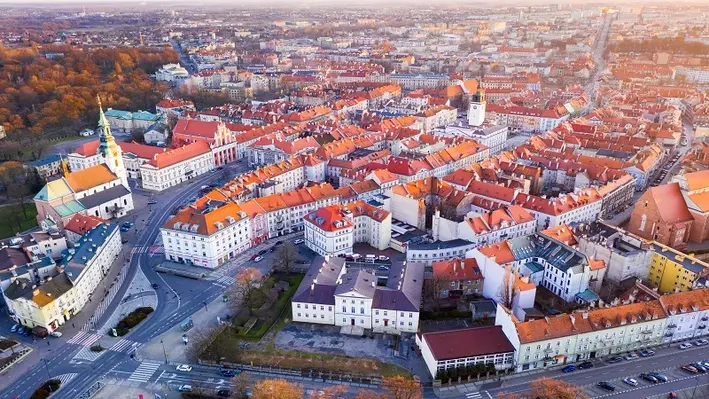
 The city of Kalisz, Poland, is set to receive PLN14mn (approx. US$3.5mn) from the National Fund for Environmental Protection and Water Management to subsidise the drilling of a geothermal well in the city.
The city of Kalisz, Poland, is set to receive PLN14mn (approx. US$3.5mn) from the National Fund for Environmental Protection and Water Management to subsidise the drilling of a geothermal well in the city.
The Ministry of Climate and Environment granted the funding to carry out work checking the availability of geothermal reserves by drilling a vertical borehole to depths of 1,700 m next to the Aquapark swimming pool complex within 2024-2025.
Kalisz has been rumoured to be the home of rich geothermal reserves, and this exploration project aims to discover if there is indeed truth to that statement.
Kalisz’ Mayor, Krystian Kinastowski, stated, “We have been waiting for this information for a long time, but it was worth developing projects, documents and analyses for many years.
“We will drill a geothermal well in Kalisz to check the availability of geothermal waters under out city […] We hope that we will be able to discover hot springs and the water found in them will be used to heat homes and for recreational purposes.”
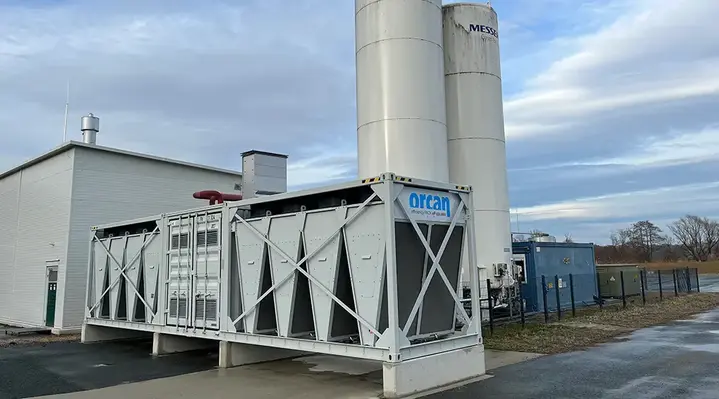
 Austrian fruit and vegetable producer and marketer, Frutura, has commissioned an energy module from Orcan Energy allowing the company to transfer excess heat from geothermal drilling into clean power.
Austrian fruit and vegetable producer and marketer, Frutura, has commissioned an energy module from Orcan Energy allowing the company to transfer excess heat from geothermal drilling into clean power.
The Orcan Energy module produces around 625MWh of electrical energy per year, enabling Frutura to save approx. 100 tons of CO2 annually.
In 2016, the company opened Frutura Thermal Vegetable World in Styria, Austria, marking a significant step for a new era of sustainable agriculture. Thermal water is used to heat greenhouses, and until recently the excess heat generated by geothermal drilling remained unused. Now, Futurua is converting the heat into clean energy with the help of Orcan Energy’s module and utilizing the geothermal borehole all year round, enhancing energy efficiency.
Manfred Hohensinner, Managing Partner for Frutura, said, “Now that we have become independent of fossil fuels for heat generation, it was a logical step to convert the excess heat from geothermal drilling into electricity. Orcan Energy was the ideal partner for us, providing all the flexibility we need to respond to any changes in the future thanks to their modular approach.”
Andreas Sichert, CEO of Orcan Energy, commented, “Together, we combine the direct use of geothermal heat with the production of electricity. With Orcan Energy, heat-to-power is also possible on a smaller scale thanks to our modular approach.
“In particular, the simple combination with our standardised modules has great potential: We can meet both the heat and electricity requirements of the building sector, commercial and industrial businesses with geothermal energy in a decentralised, CO2-free and attractively priced way.”
Page 1 of 2